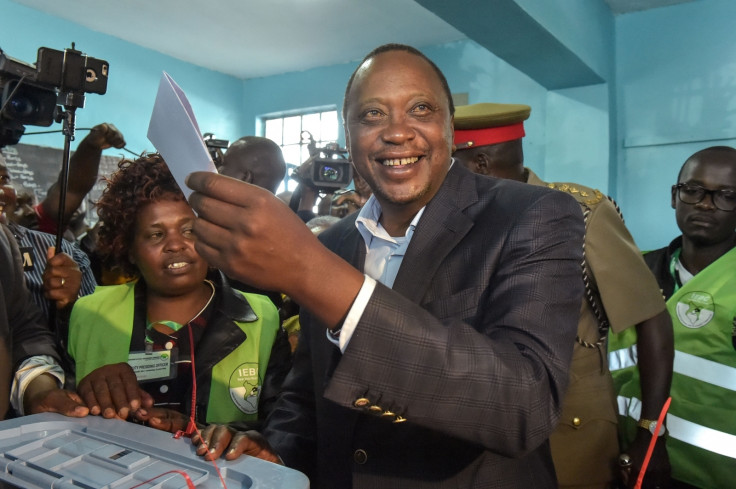Kenya's Supreme Court nullifies Uhuru Kenyatta's presidential election victory
No Kenya presidential election has ever been nullified before.
Kenya's Supreme Court has nullified President Uhuru Kenyatta's election win last month and called for new elections within 60 days, shocking a country that had been braced for further protests by opposition supporters.
No Kenya presidential election has ever been nullified.
The six-judge bench ruled Friday 4-2 in favor of the petition filed by opposition candidate Raila Odinga. He has claimed that the electronic voting results were hacked into and manipulated in favor of Kenyatta, who had won a second term with 54 percent of the vote.
The court said the Aug. 8 election was not conducted with accordance with the constitution. The court did not place any blame on Kenyatta or his party.
Odinga's lawyer had asked the court to invalidate Kenyatta's win, saying a scrutiny of the forms used to tally the votes had anomalies that affected nearly 5 million votes.
Kenya's electoral commission had said there was a hacking attempt but it failed. International election observers had said they saw no interference with the vote.
Odinga, a longtime opposition candidate and the son of Kenya's first vice president, had unsuccessfully challenged the results of the 2013 vote.

Kenya had been braced for further protests Friday as the Supreme Court prepared to rule on the opposition's challenge, with police deployed to sensitive areas of the capital, Nairobi.
Security was tight around the courthouse with armed police and barricaded streets. Human rights groups have said police killed at least 24 people in unrest that followed the Aug. 8 vote.
"This day is the D-day. We are going to know who is the president and we are very confident that the Supreme Court is going to give us our president," said one Nairobi resident, Felix Achieng, ahead of the ruling.
Local newspaper headlines declared Friday a "Date With Destiny." Many shops in the capital remained closed.
Unease around the election rose when the official who oversaw the electronic voting system was found tortured and killed days before the vote. But the unrest following last month's election was far calmer than the post-election violence a decade ago that left more than 1,000 people dead.
© Copyright IBTimes 2025. All rights reserved.





















